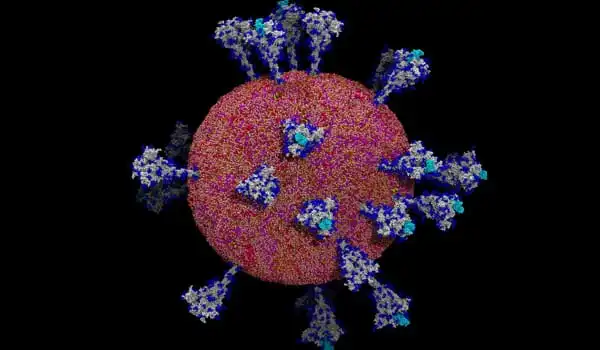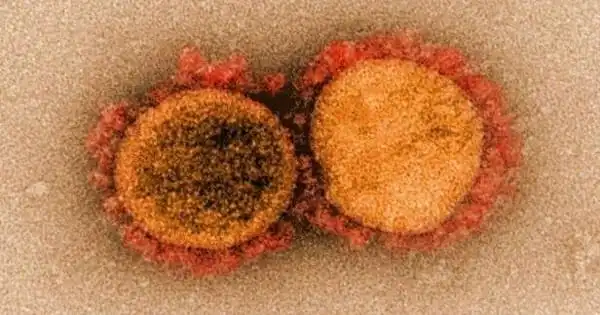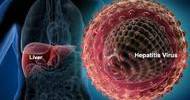The Severe Acute Respiratory Syndrome-related Coronavirus 2 (SARS-CoV-2) or novel coronavirus (COVID-19) infection has been labeled a global pandemic, resulting in a concerning number of deaths, particularly among vulnerable individuals, in 209 countries worldwide.
Tannic acid, which is often found in red wine, has been proven to inhibit SARS-capacity CoV-2’s to infect and reproduce in human cells by Quebec scientists. Tannic acid, according to researchers, plays a function in blocking three major molecular processes implicated in SARS-CoV-2 infection.
In collaboration with scientists from Université de Montréal, McGill University, and Université du Québec à Montréal (UQAM), Professor Charles Ramassamy and his postdoctoral researcher Mohamed Haddad at the Institut national de la recherche scientifique (INRS) believe that tannic acid plays a role in inhibiting three important molecular pathways involved in SARS-CoV-2 infection. Their findings were just published in the International Journal of Molecular Sciences (IJMS).
The researchers demonstrated, using a multidisciplinary approach, that tannic acid prevents the viral protein (RBD) of the British strain of SARS-CoV-2 from binding to its biological target, the ACE2 receptor. The virus can hook on to this receptor, which is found on the surface of many cells in the body, and infect them. Professor Ramassamy explained, “Tannic acid binds to the RBD protein and blocks it from connecting to the ACE2 receptor.” Tannic acid, he explained, does not modify the physiological functions of ACE2 receptors, which have physiological functions in the body’s respiratory, cardiovascular, and renal systems, among others, by blocking the viral protein.
It would be less expensive than present antivirals, and there would be less side effects due to the low toxicity of tannic acid and other polyphenols. Furthermore, tannic acid and its physiological derivatives have anti-inflammatory and antioxidant capabilities, all of which are advantageous if you are infected with SARS-CoV-2.
Professor Ramassamy
His team went on to look at the effects of tannic acid on other critical mechanisms involved in SARS-CoV-2 infection that are not linked to the RBD-ACE2 connection. The researchers discovered that this polyphenol can suppress the activity of the enzyme responsible for virus entry into our cells (TMPRSS2) as well as the viral enzyme responsible for virus replication (3CLpro).
The findings are all the more compelling because all of the researchers participated in this work arrived to the same conclusions, although using different approaches. Taking their research a step further, the researchers discovered a second method by which tannic acid stops SARS-CoV-2 from infecting human cells. Finally, they discovered that tannic acid can decrease the function of a viral enzyme involved in virus reproduction.

An alternative to antivirals
Tannic acid’s actions on the RBD protein and these enzymes pave the path for additional research on the complete virus in interaction with human cells. Tannic acid tablets or nasal spray could be envisioned as a technique of avoiding or blocking SARS-CoV-2 infection if the beneficial qualities are equivalent on a wider scale.
Tannic acid is a natural polyphenol present in a variety of beverages, including red wine and tea, albeit at considerably lower concentrations. Despite the fact that they contain tannins, their consumption would have no protective effects due to the low concentration of tannic acid.
“It would be less expensive than present antivirals, and there would be less side effects due to the low toxicity of tannic acid and other polyphenols. Furthermore, tannic acid and its physiological derivatives have anti-inflammatory and antioxidant capabilities, all of which is advantageous if you are infected with SARS-CoV-2” Professor Ramassamy stated
The study expands on the scientists’ past work on two additional types of polyphenols, TGG and corilagin, and their interactions with a variety of SARS-CoV-2 variants. The two chemicals demonstrated similar positive effects but were less potent than tannic acid.
Tannic acid is a natural polyphenol found in a variety of beverages, including red wine and tea, but in considerably lower concentrations than those employed in the study. “You’d need a lot of cups of tea or bottles of red wine to get to the concentrations we’re using,” Ramassamy joked. Instead, he envisioned the eventual creation of tannic acid-containing pills or nasal sprays to prevent or decrease SARS-CoV-2 infection.
Because polyphenols have low toxicity, such a medication would be less expensive than current antivirals, and the adverse effects would be less severe. Furthermore, he claims that tannic acid and its physiological derivatives have anti-inflammatory and antioxidant capabilities, which are both advantageous during SARS-CoV-2 remission.















